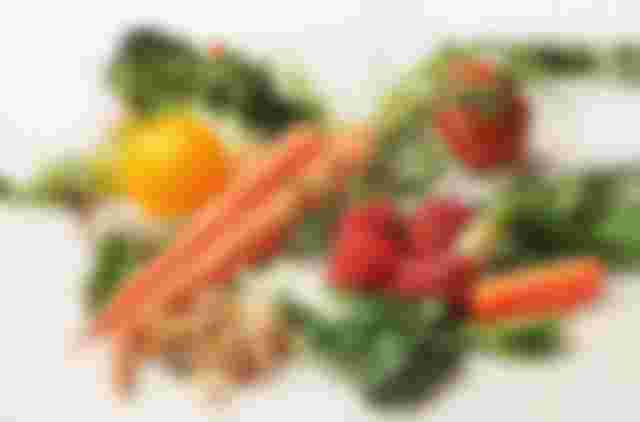There is a fundamental principle or method which most people are aware of in limited contexts, but still surprisingly unaware of in its generality. Its application in health matters is at the core of how to preserve and improve health and retard ageing, or to destroy it and die prematurely - yet I'm surprised again and again when I discover that people fail to realise this before it is explicitly explained to them. Yet everyone has applied this method on something in their lives if only as a pedagogic tool. I am talking about the power of graduality.
In nature we find innumerable examples of this power. Look at a burnt down forest, how new vegetation comes gradually, but we see no change from one moment to the next; look at how young animals grow up, each according to their own time-scale, but each one gradually; and most of all, the geological forces: mountain ranges are growing by force of the continental drift, and eroding by wind and water in small and for us unnoticeable steps. It might take millennia or more to distinguish the change, but changing it is.
But let us keep this discussion within the time-frame of human life and activity.
If you learn to play the piano, it takes a long time. You must practise a lot, but the most important is that you practise often. You will get a better result by playing 15 minutes per day than by doing so 12 hours once a month. Yet, in total, 15 minutes per day is less than 12 hours per month. It is the recurring practice that gives results. Your ability is developed gradually, in microsteps. On one occasion practising for more than one microstep is a waste of time, your brain sets a limit for the length of your microsteps and no matter how hard you try, you can never take a step longer than that. You can, however, take your steps often.

It is like that with all learning, whether theoretical or practical, whether you learn a language, mathematics, or play football. There is a limit as to how much you can advance your knowledge or ability on one occasion, and there is no purpose in trying to exceed that limit, but you can multiply the occasions. Take a microstep every day, and in a month your achievements are noticeable; in a year, or over several years, you might reach mastership.
For activities involving the brain, which include all forms of learning in theory or practice, there is also the matter of processing. When you deliberately try to learn some new words of a new language or to play that difficult etude on the piano, it is just a part of the learning procedure. When you have stopped dealing with the subject consciously, mainly while you sleep, there is further processing going on in the brain. Everything has to be mentally digested and metabolised before it can settle as new knowledge or ability. Your ability doesn't increase while you practise, but afterwards, when you rest from it, it does. But your brain can only process a limited amount of new material each time; there is no purpose in trying to push too much into it on one and the same occasion. You must learn in steps, one after the other.
If we look at physical exercise, it is similar. Say that you lift weights to increase your muscle strength. You don't grow stronger while you are straining your muscles, but when you rest them afterwards. In fact, you harm them when you strain them, they break, the muscle cells get innumerable small injuries . It is when they are healing again, when you rest and sleep, they grow a little stronger to avoid breaking the next time you strain them. But they can only grow a little bit stronger each time. Training them too much is meaningless; you must take it in microsteps: exercise, rest, exercise, rest, and so on. Gradually you are getting stronger.
You have to strain a muscle every fifth day for it to keep its strength. If it's more often, the strength will grow, if less often, the muscle will begin to atrophy, to shrink and lose in strength.
If you exercise too much and too hard, the damage you cause will not get time to heal completely in between sessions. As a result, while you might experience a short time of improvement, in the long run you will accumulate damage which gradually grows. This is because the time given for healing is too short, which regularly leaves a small surplus of unhealed damage which, little by little, over several years, builds up damage that breaks down your health. This happens to all professional athletes. An example of how the power of graduality might harm you.
People who grow fat are doing that gradually. You don't add 10 or 20 kg of fatty tissue over night.
If you ingest more energy than you use, the surplus is stored as body fat. It might be very little per day, but over time it can lead to dramatic obesity. Just 10 g new body fat per day will become 1 kg in 100 days, 3.65 kg in a year. In 20 years that is 73 kg overweight!
It is easy to realise that if you want to lose weight, that, too, is best done little by little. You cannot rid yourself of 20 kg of fat in a week. Be realistic about reducing weight, and create a schedule. Allow it to take some time. But of course it is best never to grow fat in the first place.
Developing the basis for cancer, atherosclerosis, cataract, type II diabetes, various forms of oxidation damage, demineralising of bones, overacidity, loss of teeth and much more are results of gradual degeneration. That is why it is called degenerative disease. Such a disease is characterised by its development in small steps over several years and decades. In the beginning it is so little that you will not notice anything, but in the end it leads to dramatic symptoms and finally death. The main reason is lifestyle errors which you can influence.
Can the development of degenerative disease be reverted? In most cases it can, but it requires not only knowledge, but also self-discipline and patience, because what came gradually must go gradually. It might take many years to completely heal a disease that has developed over 30 or 40, sometimes 70 or 80 years.
If you want to live well, stay healthy and age as slowly as possible, you need good habits. What matters is how you live your everyday life, not the exceptions you make. (Unless the exception is extreme, as a drug overdose that kills you instantly, or something else that has an immediate and dramatic effect. More about that below.)
Let's take diet as an example. Unless you ingest strychnine, potassium cyanide or something similar, an exception doesn't matter. If you eat healthy food the whole month, you can eat that unhealthy confectionary or whatever is in your taste one day of the month, and it will not affect your health. Why? Because both building up your health and destroying it are functions of graduality, it is what you repeat often that results in an accumulated effect, good or bad.

Many people take dietary supplements, for instance vitamins. Often they buy a jar or a package, take the vitamins until they are finished, then they say that they felt no effect so they don't continue.
Of course they did not feel any effect! Nutrition is a perfect example of something that is always working gradually and sometimes very slowly. The vitamins must be constantly present in the body, always, in order for it to function properly. If you take supplements, you must be ready to continue for many years, perhaps forever, and the improvements of your body chemistry will not be noticeable over a period of less than several months, sometimes years. You will not notice the improvements, because they are too slow and gradual, but they are there.
On the other hand, if you take a vitamin regularly, but forget it one day now and then, it doesn't matter. Graduality works in that direction too. Deficiency is developed over time, little by little, not by an occasional missed day.
You might develop osteoporosis, loss of calcium from bone, by eating refined sugar every day so your body must take all calcium for the metabolism of that sugar, you get a gradually increasing calcium deficiency and your body tries to counter it by taking calcium from the bones. To develop osteoporosis from sugar abuse takes years or decades of regular ingestion. Eating sugar once a month, however, will do no harm. So if you love sweets, take a day now and then when you allow yourself to enjoy it, but don't include it in your common everyday diet.
If for health reasons you want to become a vegetarian, but you like meat and cannot imagine living without, be a vegetarian as a basis, but eat meat once a month. This will not significantly affect your vegetarianism negatively, and life should not only be healthy, it must be enjoyable too. In most cases it is possible to combine these two, even if your taste attracts you to unhealthy choices. Things you enjoy will not be less enjoyable by being restricted to a few occasions per year.
But not all changes are gradual, they don't all come little by little. Sometimes something really changes in one or a few moments. This is in some sense the opposite of graduality; we can call it catastrophe, or shock. Things are not built that way, but destruction can occur in this form. We can blow up a mountain with dynamite instead of allowing it to erode over several millennia; someone might die in an accident or by violence instead of degenerative disease; or you might ingest strychnine and die by acute poisoning.
In medicine, illness must sometimes be treated by the use of shock. Degenerative disease is best treated by the principle of slow graduality, but infections, to take one example, which are in themselves disease by shock, sometimes need to be attacked by shock too. It is important to realise that an attack on the infection with conventional medicine does not only harm the germs causing it, in most instances it harms you too. Sometimes it is a price one has to pay.
Even if you don’t take any medicine, the immune system responds to an acute infection by generating shock. It launches a veritable war against the disease-causing germs and causes the patient a lot of straining symptoms: fever, sweating, rash… If you are strong and have a well-functioning immune system, you get these symptoms for a few days and then you are rid of the illness.
Cancer, a typical degenerative disease, is often treated by shock: by surgery, chemotherapy (strong toxins), or radiation. As a result it is not cured. When a tumour is removed, the disease is still in the body. Cancer is not a disease by shock, it cannot be cured by shock.
When I had just finished writing this text, a person near to me read it and asked "Why have you not written anything about wealth? Building wealth is also a process that is best pursued by a long-term approach of graduality, although it can easily be lost by shock."
"That is entirely correct", I replied, "unless you win at a lottery! That would be gaining wealth by shock!"
(The images are from Pixabay, CC0/Public Domain.)
(This article is based on material previously published in Meriondho Leo and my e-book “Reality & Mind”)
Copyright ©2012, 2018, 2020 Meleonymica/Mictorrani. All Rights Reserved.
All my articles on Brain & Mind can be found here, on Philosophy here, and on Psychology here.
You find all my writings on Read.Cash, sorted by topic, here.
Also, please join my community: Mind, Perception & Thought (c7a5)


'Graduality' is the right choice. I fully agree. Taking a small step every day can yield a good chunk of work, resulting in a big project.